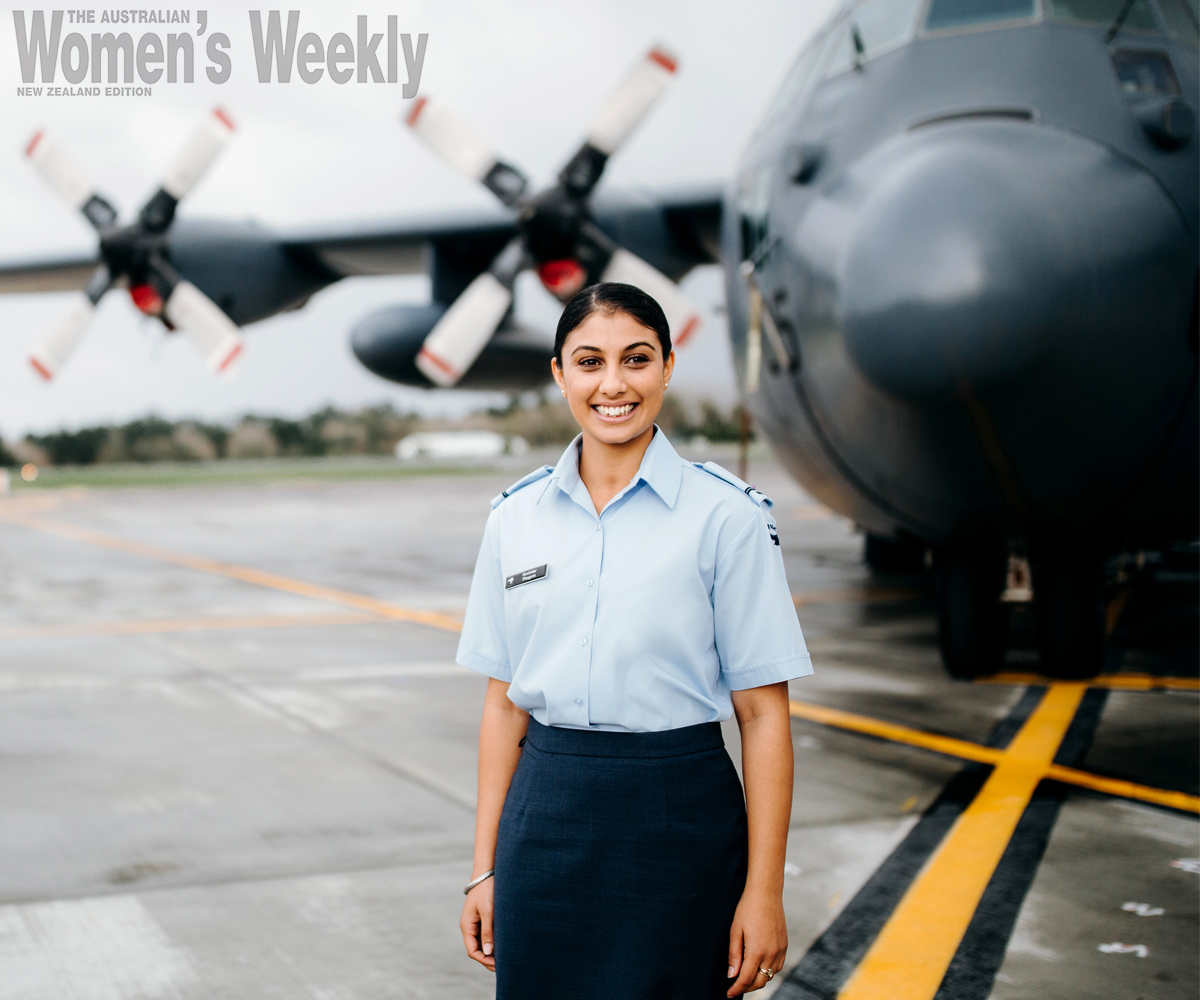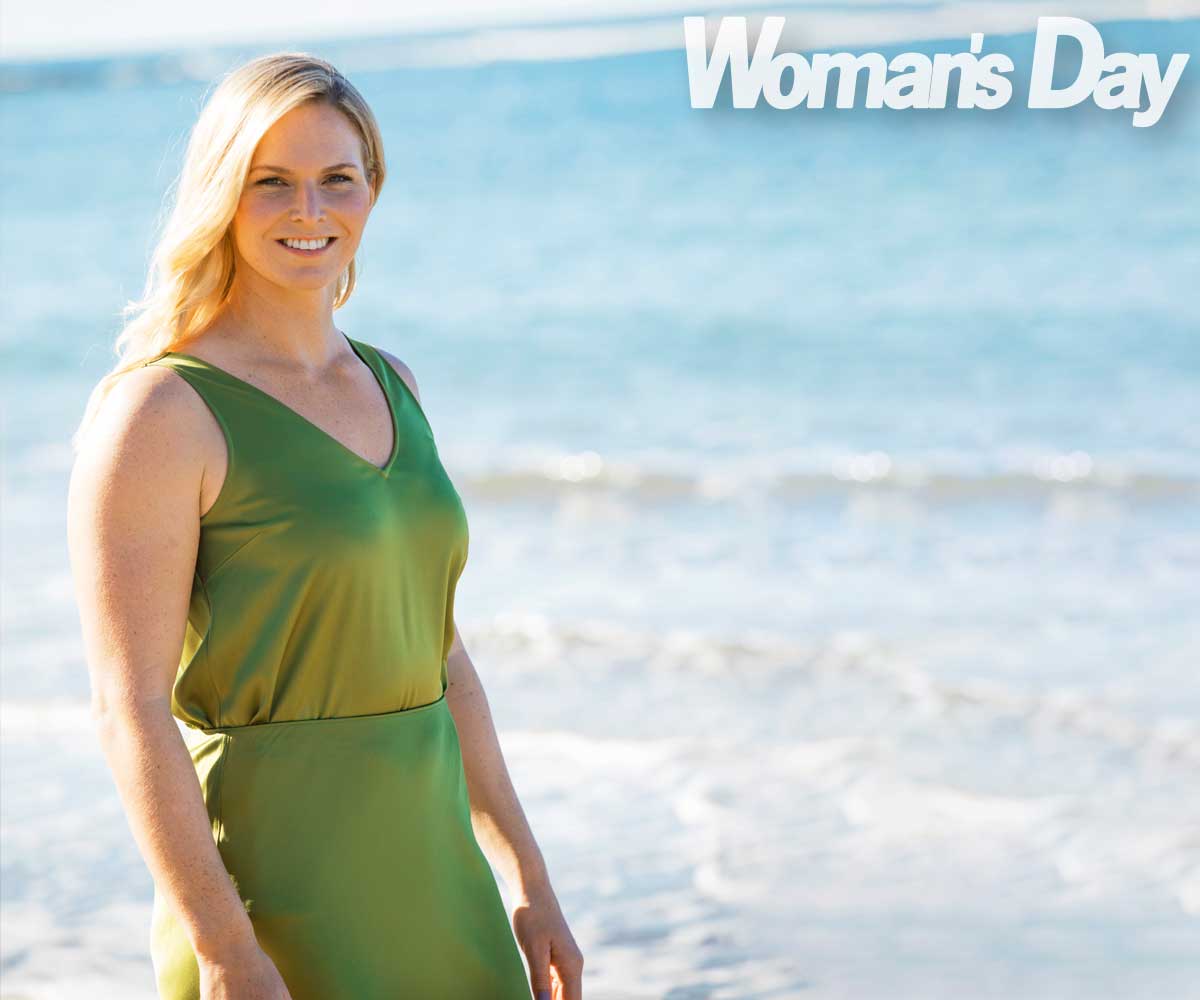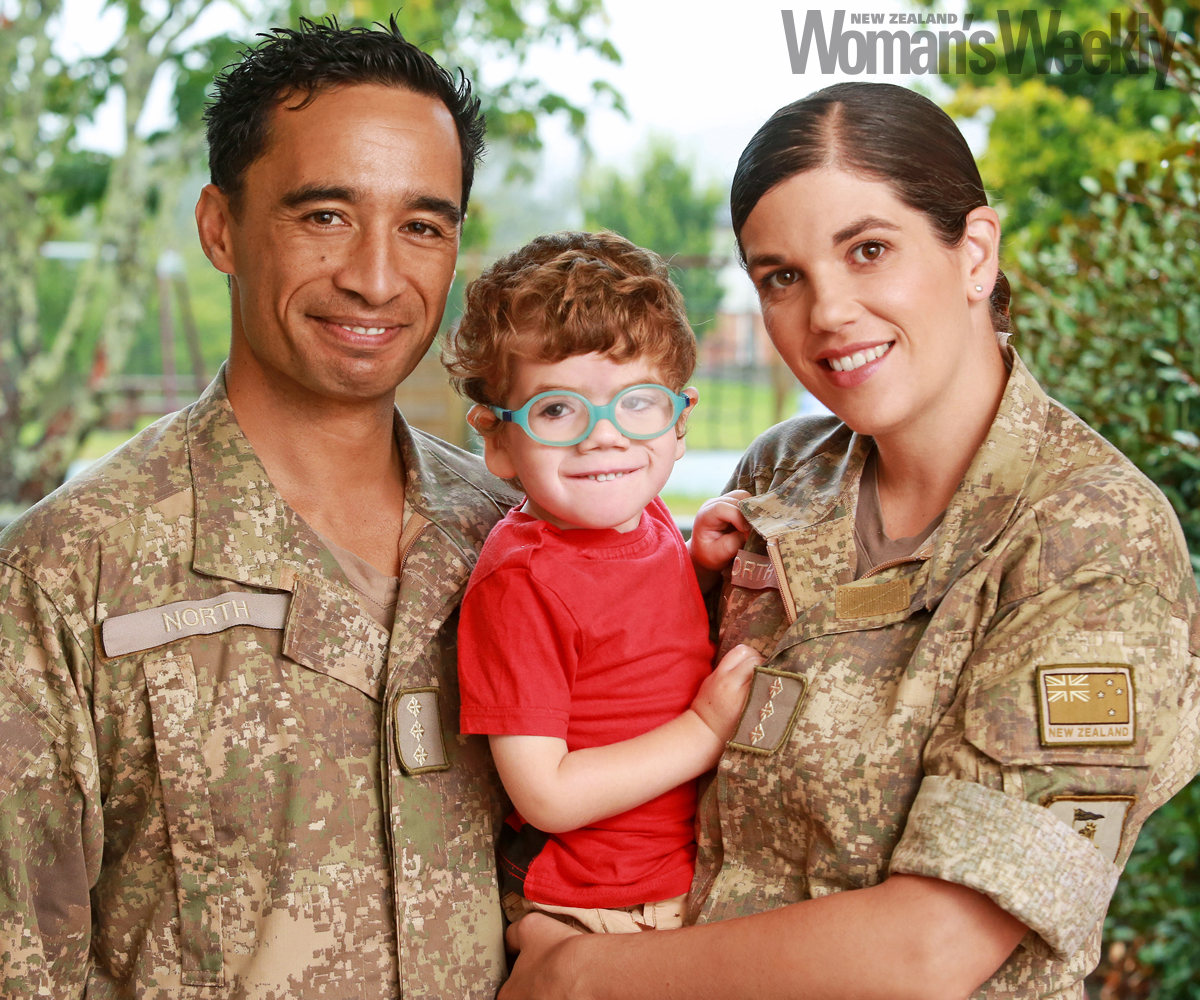Three Kiwi women share their experiences of working for New Zealand’s army, navy and air force and through them we learn that New Zealand’s defence forces are no longer the boys’ clubs they once were. They are inclusive and supportive of working mothers, young women and those who have transitioned genders.
Ravinder Phagura – Royal New Zealand Air Force
Not every little girl grows up dreaming of joining the Air Force.
But at 14, Pilot Officer Ravinder Phagura knew that was exactly what she was going to do. And she was under no illusions about what the job would involve.
“I guess people think that we always go to war,” she laughs.
“I think New Zealand has quite a modern military and it’s not all about war. We do a lot of humanitarian aid and I don’t think people see that.”
The Air Force serves to protect New Zealand, including patrolling the waters of our economic exclusion zone, search and rescue operations and responding to natural disasters. They also work alongside the Army and the Navy in peacekeeping missions across the world.
But while her work is rarely conflict-based, Ravinder – who is the first-ever Sikh woman to join the Royal NZ Air Force – knows the commitment she has made to her country if war were ever to arise.
“Right at the beginning you sign the dotted line and a part of that is that you may have to give your life for the country. That’s a decision we have all made here, it’s something I understand and it’s something that I’m absolutely fine with,” she explains.
“It’s the best decision I’ve ever made.”
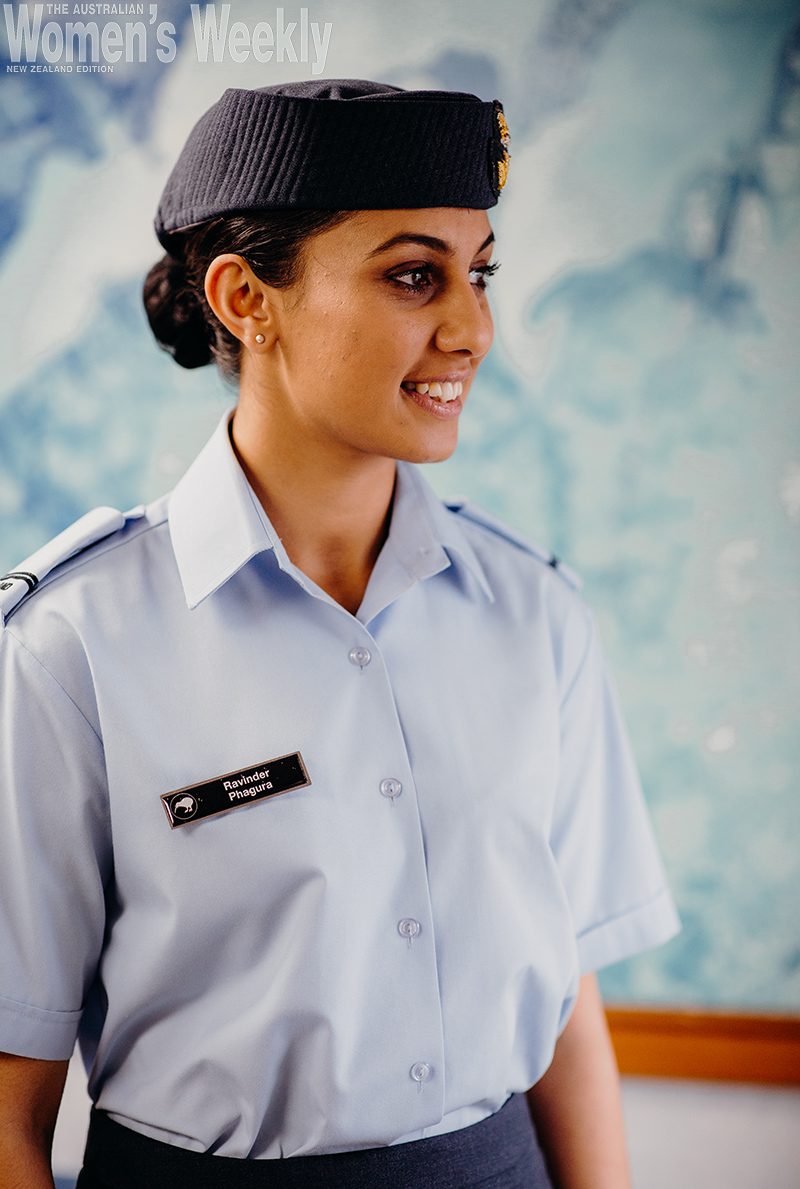
Ravinder is the first-ever Sikh woman to join the Royal NZ Air Force.
Making such a commitment at just 22 years old would be unthinkable for many, but for Ravinder it was a no-brainer.
After completing a commerce degree at Victoria University, it was almost a natural progression for the self-professed adventure lover, who had joined the New Zealand Cadet Forces Air Training Corps in her early teens.
“Initially I didn’t like Cadets; it was all the discipline and I was always out of my comfort zone,” she says.
“But now I actually love the discipline. I’ve got to make sure I’m upholding standards at all times, being a role model for my subordinates, because if I expect the same from them it makes my life a lot easier having that structure and hierarchy.”
When she is not working as a supply officer, Ravinder works with the recruitment team to encourage more diversity within the Defence Force. Currently, women make up around 20 per cent of the Air Force and Ravinder is keen to dispel any misconception that men are better suited to the forces than women.
“We are given the exact same opportunity as the males and anything that they can do, we can do as well.”
She admits that her grandparents were doubtful about her decision to sign up for the Air Force – even though she wasn’t the first member of her family to be in military service.
“We have a lot of military family history but all of them are males. It’s not really encouraged for young females to join the military in India,” she says, adding that her career choice made news headlines in Punjab.
Once she had got through the rigorous selection process, Ravinder joined other new recruits on the intense six-week training course.
“There were times when it was really hard and I didn’t know if I could do it any more, but Mum and Dad and my brothers have been my biggest supporters,” she says.
In her role as supply officer, Ravinder looks after a warehouse of aeronautical spare parts as well as 35 staff. It has been a steep learning curve, but she says enthusiastically that she has seen herself grow as a person through having the opportunity to help people and contribute to a bigger purpose.
“You always hear people say, ‘Do a job where you don’t feel like you have to go to work every day; do it because you enjoy it,’ and I’m super lucky to be in that position.
“I’m just trying to do my best to show young women [that they should] consider the military as a career, and how awesome it can be.”
Lisa Harrison – New Zealand Army
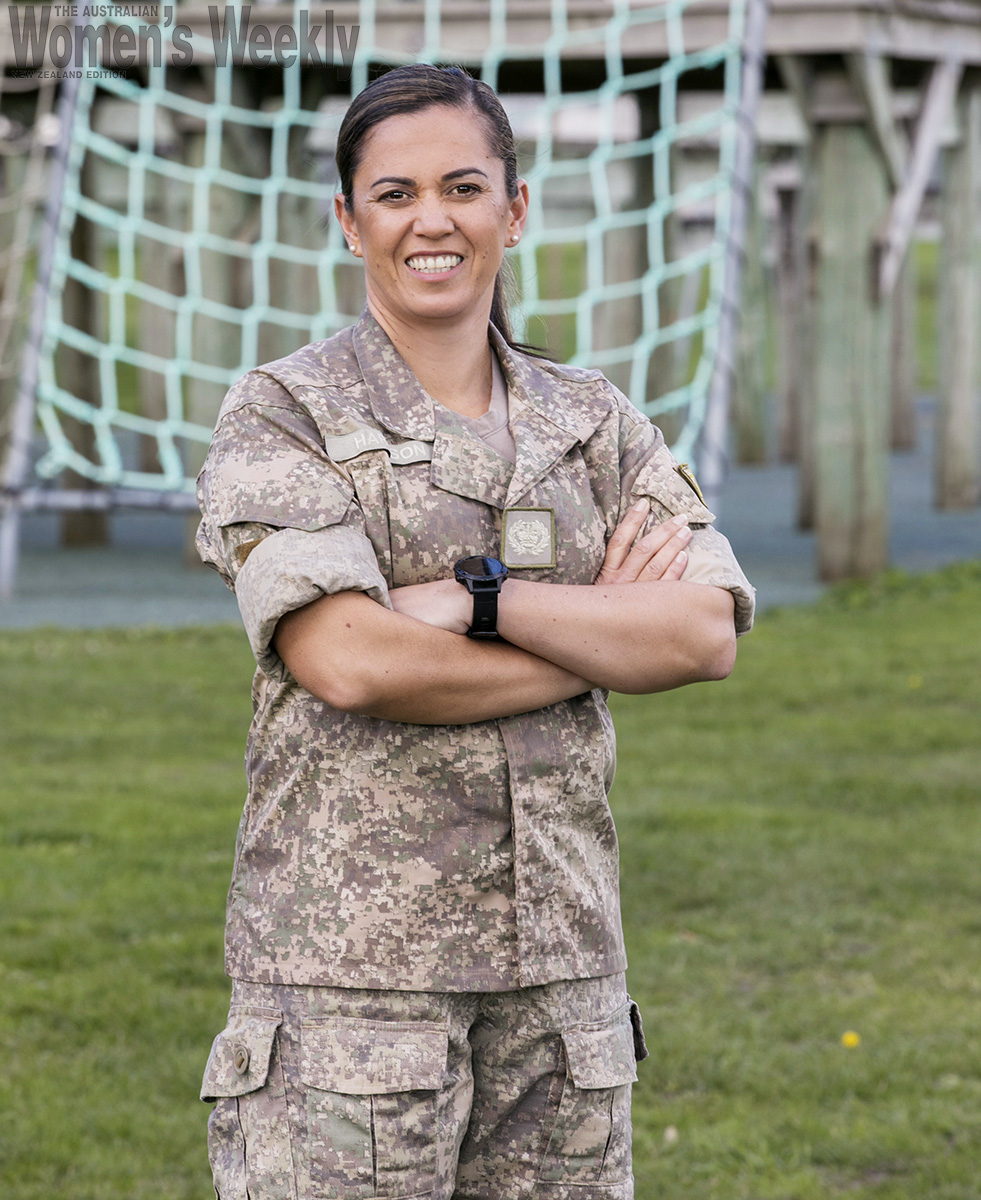
Talented sportsperson Lisa has represented her country in touch rugby at two world cups.
They say it takes a village to raise a child – or, in Lisa Harrison’s case, an army.
The 41-year-old single mother of two, who works as a Regional Physical Training Advisor at Linton Military Camp, admits that raising her children while working would have been a struggle without the Army’s support.
“It was hard to juggle being a mum and having a career. Being around good people helped me guide my children. Whether it be my bosses or my colleagues, they’ve all had a little part to play in helping me with the children,” says Lisa.
“Now my kids are successful young humans and I take my hat off to the Defence Force for helping to support me while I was solo-mumming.”
Her son and daughter (pictured opposite) are now teenagers – Carson is 17 and Awatea, 13 – but when they were younger, Lisa says it wasn’t uncommon to find her kids hanging out with her colleagues after school, playing basketball or reading, while she worked.
She says people often assume that women in the Defence Force aren’t interested in having a family.
“There seems to be a misconception about what it means to be a woman in the Army– that you have to act masculine, or that you have to give up having a family. It could be because of the way that our uniform hangs, it could be how our hair is tied, it could be the way some of us act – but it’s not actually true,” explains Lisa. You can wear a uniform and do the work we do as an army, but still go home to a marriage and children. “

Single mother Lisa says the Army have been a huge support to her and her children Carson and Awatea.
Not only was Lisa lucky enough to find a job that supported her as a mother, it has also helped her to pursue other goals in her life. Looking to escape her home town of Whanganui, Lisa left high school and went straight into the army, lured by the promise of travel, friends, money and the opportunity to help people.
But her desire to be a teacher always remained in the back of her mind.
“I actually considered it when I changed across from communications to physical training, because it would have been a stepping stone for me to become a teacher. So I thought I’ll just do two years and then I’ll take off to university.
“Then the army said that they’d pay for me to become a teacher if I stayed, so I ended up doing one paper a semester, which meant I was able to keep working and study.”
Lisa recently sat her last exam and will graduate in November with a teaching degree from Massey University. Despite her new qualification, she plans on staying in the military for a little while longer, acknowledging the Army’s move for gender equality as a good reason to stick around.
“I feel like that’s what keeps me here at the moment. Seeing these changes and seeing the Army wanting to change as an organisation and thinking we do need to give good people opportunities, regardless of gender,” she says.
“When I see females taking senior roles, it makes me proud. It’s like we are finally getting it.”
Lisa is a talented sportsperson, and while in the Army she has been able to represent her country in touch rugby at the 2011 World Cup in Scotland and the 2015 World Cup in Australia. Her role as a physical training advisor also ties in well with her training to compete in the 2020 Taupo Ironman.
Lisa says that her growth and development professionally as well as personally is attributable to her work in the Army.
“I don’t think I would have been able to get through Massey University if it wasn’t for the New Zealand Defence Force.”
She adds, “I am very lucky and I appreciate that they have invested in me. I’m very grateful for all the opportunities they’ve given me.”
Elizabeth Poucher – Royal New Zealand Navy

34-year-old Elizabeth is the first person to transition within the Royal New Zealand Navy.
Elizabeth Poucher is the first to admit that the Navy is not what it used to be.
Gone are the days of “boys will be boys”, says the 34-year-old. As the first person to transition within the Royal New Zealand Navy, Elizabeth has seen firsthand how the force has changed for the better.
“It means that people can bring their whole self to work as opposed to having to shut a huge chunk of it out,” she says.
“This year it is 25 years since they allowed open service in the Defence Force so that’s been a huge thing for us to celebrate; we are getting to a point where anyone can feel comfortable in their job here.”
Since starting her gender transition in 2016, Elizabeth, who works as a Petty Officer Electronics Technician, admits she is still surprised by how easy the process has been, and the level of acceptance from her colleagues, even the older generations, in the Navy.
“There was a salty old Warrant officer – he had his nephew there at the mess and the nephew goes, ‘Do they let people like that in here?’ and his uncle responded, ‘Yes, as long as they can do the job, it doesn’t matter,'” she recalls.
“That was not the response I was expecting and it was hugely affirming for me because I can do the job – one of the things I’m most proud of myself for is that I’m able to do so many different jobs on the ships. Not many people can maintain the radars, sonars, navigational equipment and combat system.”

Elizabeth says
Elizabeth believes her transition has been a valuable learning experience for the Defence Force in terms of embracing diversity and inclusion.
The Navy are now considering making changes to the book of reference, which means it will use non-gendered language, instead of differentiating between males and females.
“The culture in the Navy has shifted so much in that time to be so much more inclusive,” says Elizabeth.
“That’s why I think it is an awesome place to work because there is that support and understanding.
“If it was five years ago, I wouldn’t have come out in the Navy because I wouldn’t have felt safe or comfortable.”
With two children – Isabella, nine, and Nathan, six – Elizabeth also likes the idea that the Defence Force promotes a positive work-life balance. It means a lot to her that when she needs to put her family first she can.
Growing up as the child of an Air Force officer, Elizabeth says she had a fair idea of what to expect when signing up to the Navy at the age of 18, and says it is one of the best decisions she has made. She credits an anti-piracy deployment off the coast of Somalia as one of her career highlights.
“It was a satisfying job. We were part of the UN task force that was sent up there to help the Somalian government, basically because they didn’t have the manpower or resources to patrol their own coast. Just contributing to their safety was definitely a bonus,” she says.
It is rewarding roles like these that remind Elizabeth why her career choice all those years ago was the right one for her.
“My plan has always been to stay as long as they will have me. I like the idea that I’m being of service to our country. It’s just basically making our maritime nation a safer place for everyone and I really like the idea of being able to work towards that.”
